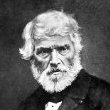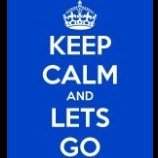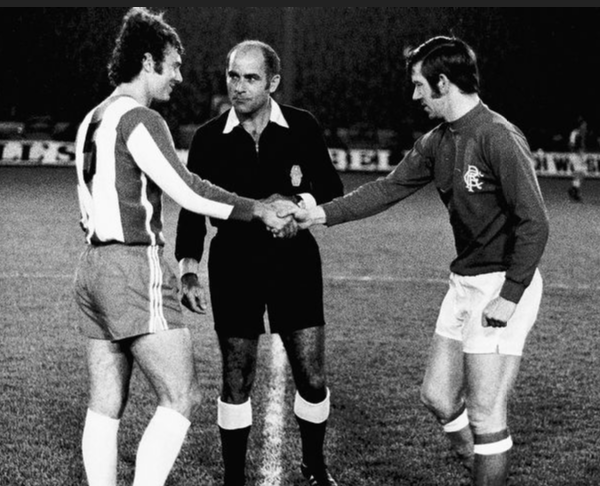Leaderboard
Popular Content
Showing content with the highest reputation on 09/01/24 in all areas
-
When you think about it two of them are crocked (Roofe, Danilo) 2 of them are utter mince (Dessers, Lammers) one is a complete unknown (Silva) so while I agree on paper we look well stocked I think the reality is we still need one.3 points
-
Seems fair, particularly since the rest of the team having been carrying Sam for the first half of the season.3 points
-
I don't. We won't win the league with the current squad.3 points
-
I wish this transfer window was over3 points
-
I believe players wishing to become managers should serve as a number two for a couple of seasons2 points
-
OBITUARY Franz Beckenbauer: German World Cup winner dies aged 78 Defender won World Cup as a player in 1974 and as manager in 1990, and died ‘peacefully in his sleep surrounded by his family’ Monday January 08 2024, 6.00pm, The Times Beckenbauer celebrates beating Holland in the 1974 World Cup final in Germany WEREK/DPA https://www.thetimes.co.uk/article/franz-beckenbauer-german-world-cup-winner-dies-aged-78-skj9mhhvv Franz Beckenbauer, Germany’s football great who lost out to England in the 1966 World Cup final before later winning the tournament as both player and manager, has died aged 78. Beckenbauer, nicknamed “Der Kaiser” or “The Emperor”, was a hugely influential presence on the pitch as a ball-playing defender or “libero” — the sweeper behind the defensive line — for West Germany, and later as the country’s head coach. The former England striker Gary Lineker described Beckenbauer as “one of the absolute greats of our game”, adding: “Der Kaiser was the most beautiful of footballers who won it all with grace and charm.” He had been struggling with ill health in recent years and his family said in a statement to the Germany news agency DPA: “It is with deep sadness that we announce that my husband and our father, Franz Beckenbauer, passed away peacefully in his sleep yesterday, Sunday, surrounded by his family. We ask that we be allowed to grieve in peace and spared any questions.” He spent most of his senior career with Bayern Munich, with whom he won three successive European Cups, and twice won the Ballon d’Or as Europe’s leading player — the only defender to do so twice — and was four times Germany’s player of the year. Beckenbauer had been implicated in a corruption case involving a £5.8 million payment connected to Germany’s bid for the 2006 World Cup but that was dropped by the Swiss federal criminal court in 2020 as the statute of limitations expired. In 2019, leaked emails claimed from a Russian MP named Beckenbauer and an adviser as recipients of €3 million for their votes in favour of Russia hosting the 2018 World Cup. He had denied any wrongdoing. Strutting imperiously with the ball out of defence and deep into enemy territory, Franz Beckenbauer is credited with inventing the position of the modern “libero” or attacking sweeper. Such was his influence on the tactical development of the game, caressing the ball with either his instep or outstep as he brought it forward with powerful strides and with his long dark mane of hair flowing behind him, he was known as “Der Kaiser”. Beckenbauer was the intimidating exemplar of West German football in an era of its domination in the early Seventies, while at the same time the England team was in decline. England had had the upper hand when Beckenbauer emerged as a force in the game at the 1966 World Cup, beating West Germany in the final at Wembley Stadium. An enraged Beckenbauer led the protests to the officials after Geoff Hurst scored the contentious third goal in extra time, an effort that helped England to go on and win the trophy for the first and only time. Yet Der Kaiser would exact more than a modicum of revenge, leading the West Germans to a famous comeback victory over England in the World Cup quarter-finals in Mexico in 1970 and vanquishing them again in the quarter-finals of the European Championship in 1972. That year Beckenbauer won the first of his two European Footballer of the Year awards, before leading his country to World Cup glory as captain on home soil in 1974. Beckenbauer captained West Germany during their 2-1 win against Holland in the 1974 World Cup final IMAGO/PRESSEFOTO BAUMANN Beckenbauer embodied all the enviable traits of West German football: power, precision, toughness, tactical discipline, an indefatigable will to win and a touch of arrogance. Yet, like England’s World Cup-winning captain Bobby Moore, he also exuded grace on the ball and a handsome charisma. After his playing career ended he proved to be a highly effective national coach and a charming ambassador for German football; the authorities there wisely made full use of his know-how and vast experience —while the Football Association in England shamefully ignored Moore after he retired. As in his playing days — when it often seemed as if he was bilocating on the pitch because he was everywhere — Beckenbauer continued to dominate German football after he played his final match in 1983, managing his country to World Cup victory in 1990, masterminding Germany’s successful bid to host the 2006 World Cup and presiding over a tournament that was widely regarded as a triumph as chairman of the organising committee. Franz Anton Beckenbauer was born just months after the end of the Second World War in September 1945, in Giesing, a working-class suburb of Munich. He was the second son of Franz Beckenbauer Sr, a postal worker, and Antonie (née Hupfauf). His father had no time for his young son’s passion for football, chiding the young Franz over his idolatry of Fritz Walter, the captain of West Germany’s 1954 World Cup winning side: “What will Walter do when he’s too old for football and has no proper trade?” his father asked. “Live off the money he’s earned,” replied the young Franz. “Footballers are too stupid to save money,” came his father’s retort. Paternal disapproval failed to stop the young Beckenbauer from joining the schoolboy squad of the Munich side SC München von 1906 in 1953, at the age of eight. When he discovered that the club did not have the funds to keep the youth teams going, Beckenbauer was on the point of joining their rivals TSV 1860 Munich, the team he had always dreamt of playing for. However, a fight with another boy during a game against 1860 persuaded Beckenbauer, then 14, to knock on the door of Bayern Munich instead. In 1962, still just 17, Beckenbauer gave up his job as a trainee insurance salesman to become a professional footballer. At that time, Bayern Munich were one of West Germany’s less fashionable clubs and did not merit a place in the Bundesliga when it was formed in 1963. Beckenbauer made his debut in 1964 as an outside left in a team that went on to win promotion to the top flight. He soon switched to midfield and immediately attracted the attention of the national team selectors for his composure on the ball and precise passing. His favourite player was the marauding Italian full back Giacinto Facchetti, who demonstrated that a defender could also be an attacker if they were fit enough and possessed the tactical nous. Initially playing as a deep-lying midfielder, Beckenbauer made his international debut in a crucial World Cup qualifier away to Sweden in September 1965. He helped West Germany to a 2-1 win and ensured qualification for the 1966 World Cup finals, to be played in England. Beckenbauer’s performances at the 1966 World Cup, when he was voted “young player of the tournament”, earned him the right to be considered one of the top players in world football. The tournament also marked him out with the English public as the man who would represent, more than any other German, the main obstacle to English footballing ambitions for years to come. In West Germany’s opening match against Switzerland, Beckenbauer scored twice in a 5-0 demolition. He scored again in a bruising quarter-final victory over Uruguay, after a characteristic deep run from defence. Beckenbauer’s stunning left-footed shot from outside the penalty area against Russia (beating Lev Yashin, then considered, along with Gordon Banks, the world’s best goalkeeper) in the semi-finals set West Germany on course for a clash against England in the final. There’s been much debate in football over the years about whether the German team manager, Helmut Schön, was wrong to order Beckenbauer to man-mark England’s creative force Bobby Charlton (ironically, the England manager Alf Ramsey ordered Charlton to mark Beckenbauer and the two effectively nullified each other’s considerable attacking threat). Beckenbauer led the phalanx of West German players who surrounded the referee to insist that Hurst’s goal that put England 3-2 ahead had not crossed the line after it bounced down off the crossbar, but ultimately he was gracious in defeat, acknowledging that the hosts were the better team on the day. Two years later, in Hanover, West Germany beat England for the first time. The only goal, of course, came from Beckenbauer. “That was when we realised we could beat them,” he said later. Their next game was in Mexico, at the quarter-finals of the 1970 World Cup. Aware perhaps of his tactical error in 1966, Schön again told Beckenbauer to man-mark Charlton, but this time “not like a guard dog. Make him follow you around the pitch.” The change appeared to make little difference as England, in the searing heat, led 2-0 with two thirds of the match played. Beckenbauer himself brought West Germany back into the game with an unexceptional long-range shot that Peter Bonetti (in goal in place of Banks, who was suffering from a bout of food poisoning) made a fearful hash of. Ramsey then substituted an exhausted Charlton and Beckenbauer, freed from policing the playmaker, was able to lead the rejuvenated Germans to a 3-2 victory in extra time, setting up another dramatic, brutal, semi-final clash against Italy. The Azzurri won the classic encounter 4-3, but this time Beckenbauer was less gracious, convinced they had been cheated out of victory by the referee’s failure to punish persistent and crude Italian foul-play. After dislocating his shoulder in one clash, Beckenbauer appeared for the second half with his arm in a sling. Urging on his troops, he strode around the field refusing to lose his cool in the face of repeated provocation. Two years on and battle with England was resumed. This time it was a European Championship quarter-final at Wembley. West Germany, by now captained by Beckenbauer, and aided by an inspirational young midfielder Günter Netzer, put England to the sword, winning 3-1. It was the first German victory on English soil (the semi-finals and final were held in Belgium) and is still regarded as one of the great nights in the country’s football. Beckenbauer lifted the trophy after West Germany handsomely won the final, beating the Soviet Union 3-0. At club level, Bayern, under Beckenbauer’s leadership, won three successive Bundesliga titles and three successive European Cups, thrashing Atletico Madrid 4-0 in 1974 in the replay, before beating Jimmy Armfield’s unlucky Leeds United 2-0 in 1975 and St Etienne of France 1-0 in 1976. That year they also beat the South American champions Cruzeiro of Brazil in the World Club Championship, then known as the Intercontinental Cup, earning the right to be described as the premier club side in the world. The peak of Beckenbauer’s success on the pitch, though, was undoubtedly the World Cup victory in the Olympic Stadium in his home city of Munich in 1974. The Germans beat a technically superior, but dangerously complacent, Netherlands 2-1 after falling behind in the first minute without even having touched the ball, when Johan Cruyff slalomed through the West German defence and won a penalty. On the eve of the tournament, the German players were on the point of refusing to play because of a dispute over bonus payments. The manager, again Schön, was preparing to call up an alternative 11. It was Beckenbauer who, after a night of negotiations with the German Football Association, told the players to accept a compromise offer. Beckenbauer was named European Footballer of the Year, receiving the coveted Ballon d’Or, for the second time in 1976. A year later, after becoming the first German player to win 100 caps, and having scored 14 goals, he retired from international football. Beckenbauer resisted a belated attempt by Schön to lure him out of retirement to play in the finals in Argentina in 1978. He hoped to find a new challenge, as well as earn a lot of money, by playing in America’s professional league, then known as the NASL. “I was having problems in my private life [his affair with the photographer Diane Sandmann was splashed all over the German tabloids] and problems with the taxman so I went to New York,” he said. “It was the best time of my life.” He embraced the NFL-style razzamatazz of US soccer, teaming up with Pelé at the New York Cosmos. The value of Pelé was obvious even to the unschooled observer, but the Cosmos’s president was initially nonplussed to see Beckbenbauer lining up behind the defenders. “Who is this guy we paid a million dollars for playing at the back of the team?” he complained. He was soon disabused, as Beckenbauer helped the Cosmos to win three US championships, in 1977, 1978 and 1980. While Pelé lived it up at the Manhattan disco mecca Studio 54, Beckenbauer also immersed himself in the city’s celebrity culture, once recalling how the Russian dancer Rudolf Nureyev once took a fancy to him in a yellow taxi and put his hand on his knee. Beckenbauer calmly proceeded to talk about his wife until Nureyev desisted. In 1982, he returned to Germany to help SV Hamburg to the Bundesliga title, but after another spell with the Cosmos in 1983, Beckenbauer finally retired. A year later the West Germany Football Association turned to Beckenbauer after sacking Jupp Derwall following a disappointing performance in the 1984 European Championships, where the team failed to make it past the group stage. In his first job in football management, Beckenbauer guided the team to the 1986 World Cup finals in Mexico. His team may have lacked the ability of the great side of the early Seventies that he led with such distinction, but he still led them to the final, against Argentina. However, Diego Maradona was not to be denied as he captained Argentina to a 3-2 victory, but Beckenbauer’s team played a full role in one of the best finals ever, coming from two goals behind before a 84th minute strike by Jorge Burruchaga sealed victory for La Albiceleste. Beckenbauer went on to lead the team to the 1990 World Cup finals in Italy and the almost pre-ordained meeting with Bobby Robson’s valiant England in the semi-finals, which many have cited as the start of English football’s revival. The penalty shootout, which Beckenbauer’s team won, has gone into football folklore. Beckenbauer, who always professed great respect and admiration for English football, described the game as the tournament’s true final; West Germany won a dull revenge match against a cynical Argentina in the actual final. His career in football came full circle when he returned to Bayern Munich as manager, where he won the Bundesliga in 1994 and thrashed Bordeaux in the 1996 Uefa Cup final. Beckenbauer then moved “upstairs” to become club president. In 1998, he accepted the post of vice-president of the German Football Association. An assured diplomat, who with his penchant for frameless glasses and slightly bland sports jackets reminded one profiler of a benign but ageing TV gameshow host, Beckenbauer promoted Germany’s bid to host the 2006 World Cup. In the face of competition from England, and particularly South Africa, who were firm favourites, Germany won the bid by a single vote. The 2006 tournament was a triumph for Beckenbauer, if not for Germany. It was widely acknowledged to have been the best organised of any so far and the hospitality and enthusiasm shown by the German public went a long way towards changing the image of the country abroad. Even the German team, unfancied at the start of the tournament but coached by the affable Jürgen Klinsmann, won rave reviews for its attacking style of play. Der Kaiser famously embraced a clearly taken aback German chancellor Angela Merkel after Germany beat Argentina in the quarter-finals, before they were knocked out by the eventual winners, Italy, in the semi-finals. Beckenbauer was a ubiquitous figure, traversing the country in a helicopter and attending 46 of the 64 matches, and even finding time to get married again during the tournament. Some of that lustre wore off in 2016 when it was announced that Beckenbauer was being investigated for fraud and money laundering as part of Germany’s winning bid — after widespread corruption at Fifa had been exposed. He was also investigated for allegedly receiving bribes for backing Russia’s bid to host the 2018 World Cup. The investigation was closed without a verdict in 2020. Indeed, Beckenbauer’s life off the field did not always endear him to the socially conservative, largely Catholic inhabitants of his native Bavaria. He first became a father at the age of 18 after an affair with a co-worker at a Munich bank. Married for the first time in his early twenties to Brigitte, he had two more children with his second wife, Sybille, before a much-publicised tryst with a Bayern Munich employee 20 years his junior, which led to a third marriage in 2006. He is survived by four children: Thomas, Michael, Francesca and Joel. Stephan, his first son who predeceased him, was also a professional footballer, as is his grandson, Luca. Beckenbauer continued to be held in grudging respect and even some affection by the football-loving English. And though he reciprocated the sentiments, he treasured all of his famous victories over England and also revealed a certain kinship with England’s “auld enemy”. Having developed an interest in reincarnation in later years, he was told that in a previous life he had been a famous Scottish warrior. Franz Beckenbauer, World Cup winning footballer and manager, was born on September 11, 1945. He died on January 7, 2024, according to a family statement reported by Bild, the BBC and NBC, aged 782 points
-
Just to put some perspective on the Hagi/Alaves loan. Hagi wanted to stay with Rangers, MB wanted him out. Alaves came to La Liga, one of the best leagues in world football, from a fourth place finish in La Liga 2 the previous season. The chances of Hagi propelling them up La Liga were super slim, even if he got full games. To judge him on this loan is pretty daft imo.2 points
-
2 points
-
I have said this for years, all away fans should be in the furthest corner of the stadium (i.e. the worst seats) harder to be on the tv or be heard. This is in line with what we find all over Europe when we travel to away games and I have never understood why we give visiting supporters a prime viewing location.2 points
-
Surely Umar Sadiq is the only man they need.......2 points
-
2 points
-
A shame that he is not playing much. I would like him to get another chance.2 points
-
One of the greats. I hope the phrase 'he thinks he is Beckenbauer' lives on forever in football.2 points
-
Given that it is subjective I would be happy to wait for his manager to vouch for him in the tabloid press the following day. "He's not the type of player to just punch the ball away"2 points
-
We badly need a striker. We've obviously been linked with Shankland and Danny Ings(loan). I'm not fussed if we get one or the other, but we definetley need someone of that ilk. We wont be in a title race without one.2 points
-
Hagi barely playing for a relegation fodder team in Spain strongly makes me question his ability to come back and play for us. I know football isnt an exact science and things dont work like that, but he has rarely played for them.2 points
-
2 points
-
Where's it from, there's a shed load of dreadful Rangers 'outlets' on social media that post any old shite for clicks.2 points
-
That sounded (read) like something Stewart Weir from the podcast would say. Every time I read your posts, I will now hear his voice. 😆2 points
-
Given there's a been no mention of it anywhere else in the past week, we can probably file it under "lot of shite".1 point
-
I might be wrong but somehow Shankland going to Wrexham doesn't ring true. We'll see.1 point
-
You would hope that all business - like the Silva one - is done behind the scenes, Shankland and Co. are being used as the proverbial red fish. I have yet to read any credible source on that Doig - Ridvan swap talk, rather on the contrary, it looks more like money for Ridvan than anything else.1 point
-
1 point
-
We could always just give them fewer tickets.1 point
-
Sam Adrianus Martinus Lammers will carry us over the line.1 point
-
There's a decent film about Beckenbauer, called Der Kaiser - just came out last year. https://m.imdb.com/title/tt19623364/1 point
-
1 point
-
Agree, Hagi made a big fuss about leaving Rangers as he wanted to play. He went to Alaves and has not played..1 point
-
100% surely there should be a clause that they also need to do the same thing if taking a player on loan in playing him when he is fit , if not and the other club sees that then a recall should be implemented , especially when we have difficulties in positions.1 point
-
Fairs Cup, September'70. We lost 0-1 to Bayern in most controversial circumstances. The Ref' awarded an indirect free kick, Gerd Muller struck the ball into the net without anyone else touching it. Thus, no goal; however, the Ref' awarded a goal.1 point
-
1 point
-
I don't think Hagi is 'flourishing' in Spain. In general though, the weight of expectation is different at Rangers than it is at the vast majority of football clubs.1 point
-
1 point
-
Yeah... he's actually p*sh. Bullet dodged.1 point
-
1 point
-
1 point
-
Clement and the board will decide. If Hearts demand £5m, I think we'd be nuts to pay. Nothing is pre-proven in football (Hearts don't play against defensive set-ups the way we have to, for starters).1 point
-
1 point
This leaderboard is set to London/GMT+01:00








.thumb.png.933227737d9b1db3d025cd3f6cbbf371.png)








